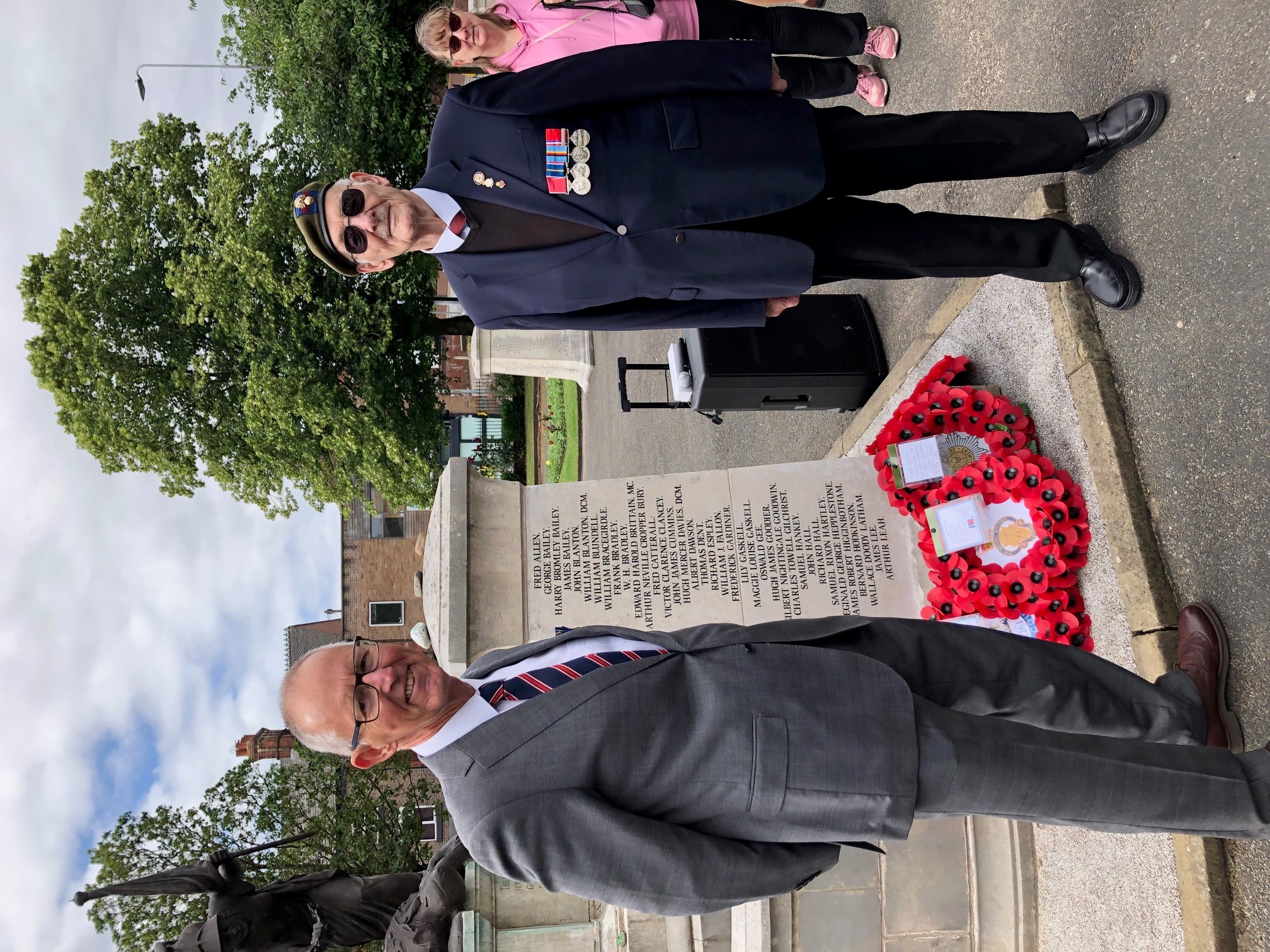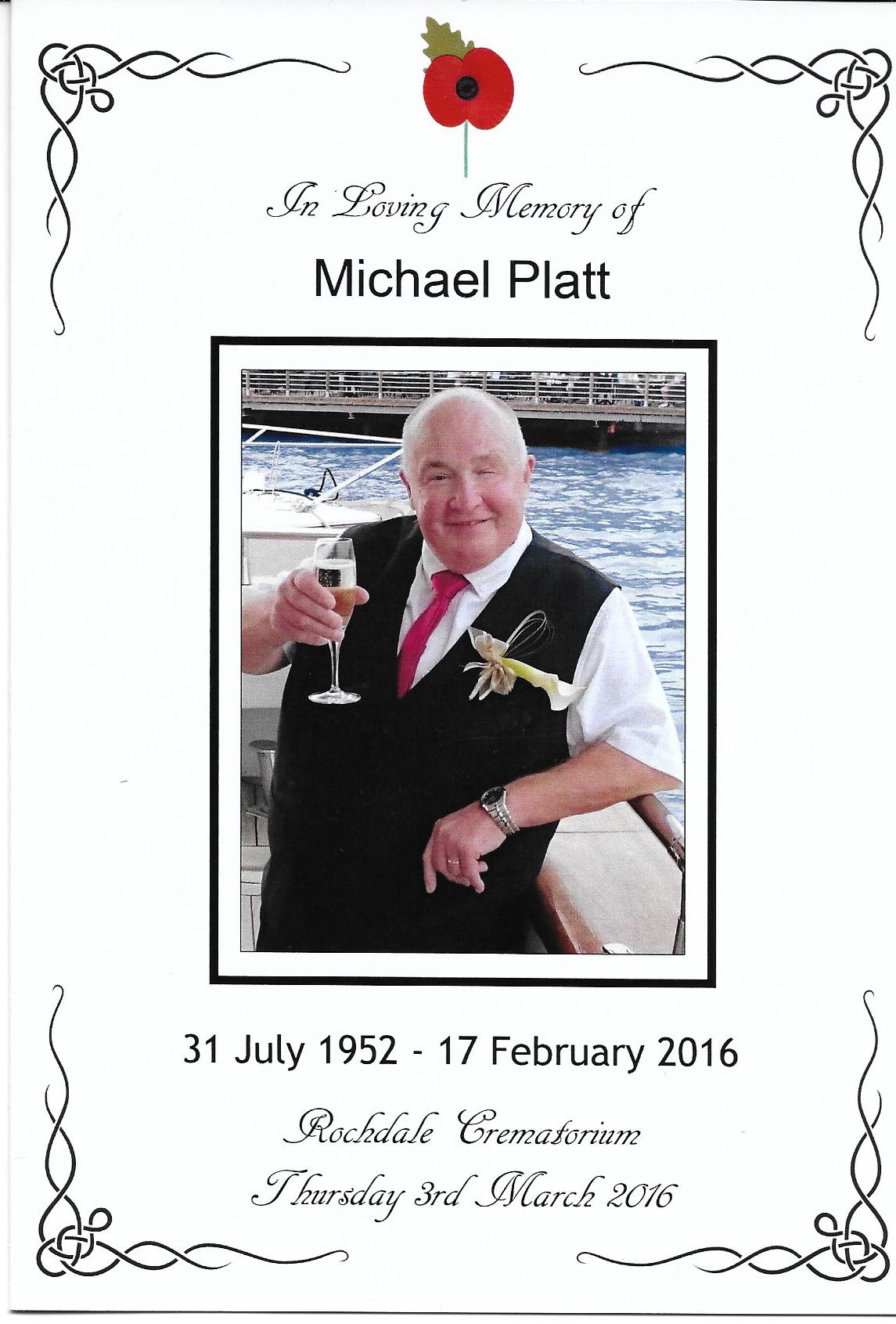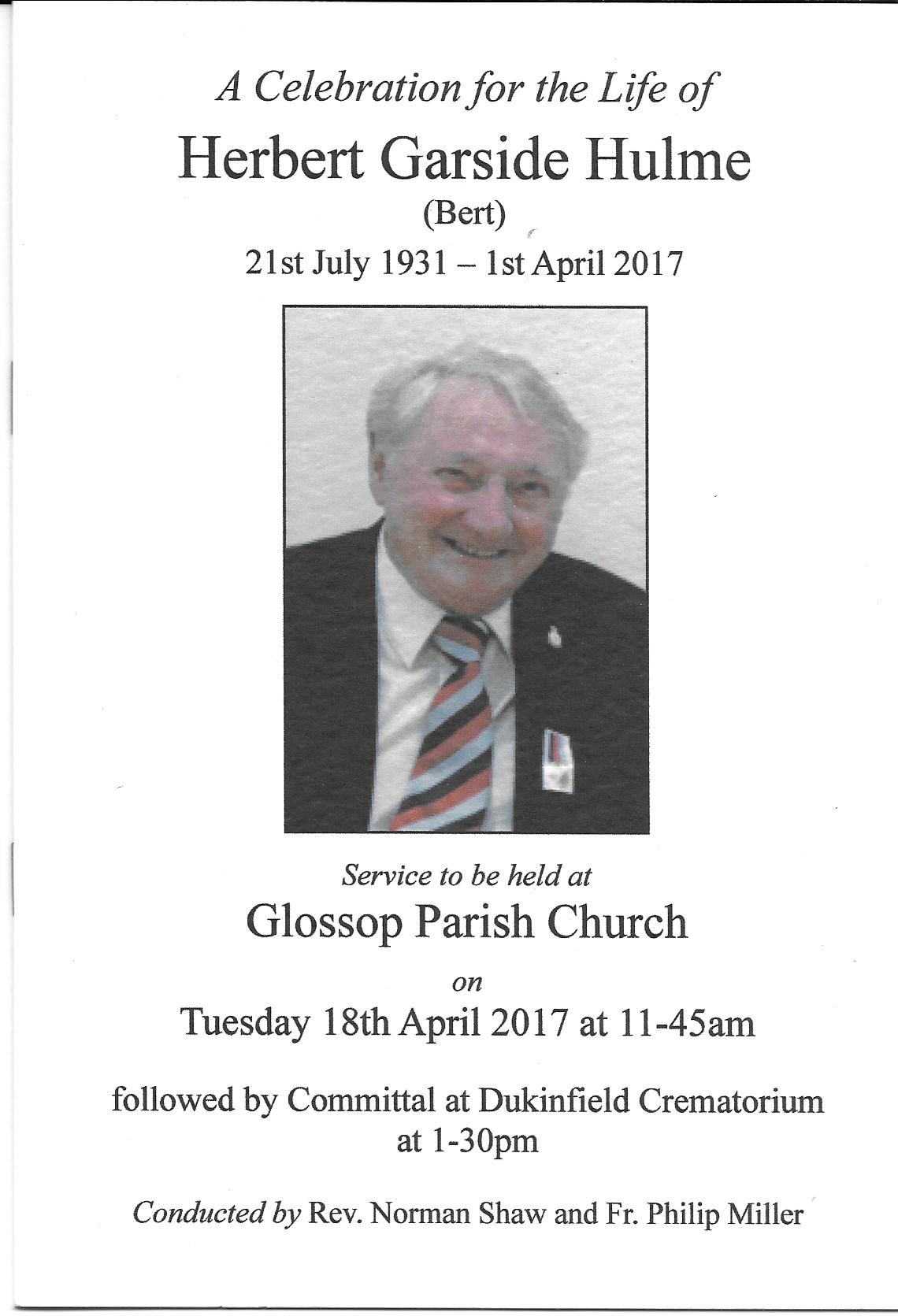News
- Details
- Category: News
For details of the speaker for December's meeting, see the Branch Meetings section - click here.
Last Month’s Talk
Tim Cockitt presented an account of the Battle that tested France to the extreme. It lasted from February to December 1916 on the Western Front. The battle was the longest of the First World War and took place on the hills north of Verdun-sur-Meuse. The German 5th Army attacked the defences of the Fortified Region of Verdun (RFV, Région Fortifiée de Verdun) and those of the French Second Army on the right (east) bank of the Meuse. Using the experience of the Second Battle of Champagne in 1915, the Germans planned to capture the Meuse Heights, an excellent defensive position with good observation for artillery-fire on Verdun. The Germans hoped that the French would commit their strategic reserve to recapture the position and suffer catastrophic losses at little cost to the Germans. Several of the forts in the area had been virtually denuded of their guns, which had been taken to supplement those on the Western Front as trench warfare evolved.
Poor weather delayed the beginning of the attack until 21 February but the Germans captured Fort Douamont in the first three days. A German NCO climbed inside and found a small contingent of soldiers whom he promptly forced to surrender.The advance then slowed for several days, despite inflicting many French casualties. By 6 March, 20 French divisions were in the area and a more extensive defence in depth had been constructed. Philippe Pétain ordered no retreat and that German attacks were to be counter-attacked, despite this exposing French infantry to German artillery-fire. By 29 March, French guns on the west bank had begun a constant bombardment of Germans on the east bank, causing many infantry casualties. The German offensive was extended to the left (west) bank of the Meuse, to gain observation and eliminate the French artillery firing over the river but the attacks failed to reach their objectives.
In early May, the Germans changed tactics again and made local attacks and counter-attacks; the French recaptured part of Fort Douaumont but then the Germans ejected them and took many prisoners. The Germans tried alternating their attacks on either side of the Meuse and in June captured Fort Vaux. The Germans advanced towards the last geographical objectives of the original plan, at Fleury-devant-Douaumont and Fort Souville, driving a salient into the French defences. Fleury was captured and the Germans came within 4 km (2 mi) of the Verdun citadel but in July the offensive was cut back to provide troops, artillery and ammunition for the Battle of the Somme, leading to a similar transfer of the French Tenth Army to the Somme front. From 23 June to 17 August, Fleury changed hands sixteen times and a German attack on Fort Souville failed. The offensive was reduced further but to keep French troops in the area away from the Somme, ruses were used to disguise the change.
Verdun could not be easily accessed by railway, as the train line was overlooked by German positions, so Petain came up with the idea of supply by motor vehicles along a narrow road which became known as La Vie Sacre. It was kept open by round the clock repair groups and any vehicle that was hit or broke down would be pushed off the road.
In September and December, French counter-offensives recaptured much ground on the east bank and recovered Fort Douaumont and Fort Vaux. The battle lasted for 302 days, the longest and one of the most costly in human history. The French suffered 377,231 casualties and the Germans 337,000, a total of 714,231 and an average of 70,000 a month. In France, the battle came to symbolise the determination of the French Army and the destructiveness of the war.
Terence Jackson
- Details
- Category: News
December Update Lancs. & Cheshire WFA
Thanks to Tim Cockitt, last months speaker ,for organising a guided tour around Southern Cemetery, Manchester and opening it up to our branch.. The tour had a Gallipoli theme and was very informative in revealing Manchester’s involvement during and after the campaign.
Tonight’s speaker is Tim Coltman speaking about his relative: Lance Corporal (LCpl) William ( Bill) Harold Coltman VC , DCM and Bar, MM and Bar .
I’m sure it will be a very enthralling story of an incredible man.
The 12th January meeting will be our annual social. Two speakers will be giving 30 minute presentations. A sale of books and memorabilia will take place alongside an extensive buffet.
Come along and enjoy.
We have the opportunity next year to try something a bit different a zoom presentation at our usual second Friday of the month meeting. We have to liaise with the Army for the equipment before we can proceed. Anybody with any objections or misgivings please speak to me.
Future Speakers
1st December
Tim Coltman
Harold Coltman the most decorated soldier of the Great war.
12 January 2024
Chairmans Night
Two guest speakers:
Ann Jackson Art and War
Martin Purdy The Willis Brothers
Buffett ,Memorabilia and book sale
9 February
Medical Students in the First World War
Martin Lovell
8 March
Andrew Gill. TBC
12 April
The footballers of Gallipoli
Clive Harris
Last Month’s Talk (October 2023)
The Branch welcomed back Peter Hart, one of the Branch’s most popular speakers. In his own innovative style ‘Laugh or Cry’ considered how soldiers adapted to life in trenches. Humour (often black) was a prime source for dealing with the strain of living in a war zone, where death or injury was a constant threat.
It was also not a new aspect of war. However, this conflict meant that units spent longer periods in the same geographical position than had been the case in previous wars.
Contrary to popular belief, soldiers did not spend endless hours in the same dirty and sodden trench. ‘Out of Line’ was a way of varying the ordeal. Men might serve 3 continuous days in a front-line trench then have a similar period in a rest area. Other periods might be given to the necessity of repairing damages to the trench or wire. Briefings for the frontline units would be held and a constant watch over No Man’s Land was required.
Much of the reserve areas were in the open, in poor condition and pure rest was relatively short. (The Aussies would often mimic the bleating of sheep, reflecting their positions to places back home). Periodically, rest was allowed further away from the front line. Officers would get better accommodation - damaged farmhouses etc (and have a man servant). The average Tommy had to accept poorer areas for resting.
Civilians who had not evacuated from the frontline had to put up with some of the soldiers’ more unpleasant behaviour. They were also worried about soldiers ransacking their homes, pollution of wells and the threat to their female offspring and livestock.
The basic needs of soldiers were good food, alcohol and sex. Out of the frontline, estaminets would offer a basic menu of egg and chips, and inevitably alcohol. Sex was not freely available and disease was a constant threat.
Training was constantly reviewed as the enemy changed tactics. Route marches were intended to increase stamina. Rest was at a premium as the enemy might introduce a new scheme to surprise its enemy, for example, gas. The soldier had to be alert at all times.
Equipment was introduced for protection, e.g., helmets. Aeroplanes were initially used for reconnaissance, but eventually began to fight each other and bomb important targets. The development of the tank was to change war, not only in this conflict, but was the infant of the modern vehicles we see today.
An excellent talk, enlightened by Peter’s engaging style of presentation.
Terry Jackson
October 2023 Update, Lancashire & Cheshire WFA
Eric Hunter
The December meeting will now be held on Friday 1st December not as previously advertised. This is the first Friday of the month. The speaker remains the same.
The national committee of the WFA is again offering travel expenses to London on Saturday 11th November to attend the ceremony at the Cenotaph. Anybody interested in attending please contact me, ideally by e-mail,
Our web page, landcwfa.org.uk, has had a few problems but is now back on line.
Tonight’s Speaker
A welcome return to the branch of Peter Hart.
Laugh or cry, Rest? Nothing but working, working, bloody working.
Peter will talk about the lot of the infantry man. When not fighting invariably hard at work on other duties.
Future Talks
All meetings commence at 7.45pm at the Armoury , Greek Street. Stockport.
10 November
Remembrance Ceremony attended by Mayor & Mayoress of Stockport.
Tim Cockitt
Manchester’s Experience of WW1
1st December (note new date)
Tim Coltman
Harold Coltman the most decorated soldier of the Great War.
12 January 2024
Chairmans Night
Two guest speakers
Buffett
9 February
Medical Students in the First World War
Martin Lovell
Remembering newly discovered casualties of the Great War in Macclesfield

Picture: Harry Carlisle (R) and Eric Hunter Chair Lancs. & Cheshire WFA (L)
On Sunday 2nd July 2023 an unveiling ceremony took place at the Cenotaph , Park Green , Macclesfield. Fifty additional casualties of the Great War had been discovered by a group of local historians who had painstakingly researched local war memorials and achieves. Following a short service wreathes were laid to honour the fallen and the Mayor of Macclesfield Cllr. Wilock gave an speech which emphasised that honouring the fallen is not determined by time limits.
Harry Carlisle has been instrumental in bringing this project together His initial research on all the names on the Macclesfield Memorial catalogued in his book, Not Just a Name , revealed many omissions .As he recounts the personal histories which may have excluded names being placed on the original memorial, he finds it had to explain why ;
Men already displayed in the war garden but their brothers are not, it was suggested that perhaps the relatives were still hanging on to the hope that they were still alive somewhere, and didn’t want the trauma of adding another name of remembrance.
There were no fixed rule on who was or not recorded on the memorial. The original citation honoured;
“This Memorial was erected in honour of Macclesfield men who gave their lives for their King & Empire in the Great War 1914 – 1918.”
As we now appreciate the casualties of war did not end on November 11th 1918 and many of the deaths recorded were 1919 the latest been 1921 all however had seen war service.
The additional names include the first women to be honoured on the memorial. The tragic events that ended in sisters Lily and Maggie Gaskell dying shortly after the end of the war from the effects of Spanish flu. They served with 2nd Western General Hospital, Territorial Force Nursing Service , Manchester. Descendent members of the same unit, now named 206 Multi- role Medical regiment (MMR) come to pay their respects at the service.
Perhaps the most unusual was Pte William Doody Wallace who enlisted into the Cheshire regiment in 1916 . Wounded in 1917 and after a period of convalescence transferred to the Army Pay Corps for whom he was still employed when he died in a boating accident in Arnside on 11th September 1920.
Many of the men were honoured on local memorials, many of which have now vanished . Local historian Geoffrey Archer painstakingly recorded many of these before they were lost. It is appropriate and fitting that after a hundred years ,finally all the known names of the casualties of the Great War, men and women, are honoured together on their local memorial.
Harry Carlisle’s books Not Just another name and the Supplement of additional names are available from Harry. Email
Annual General Meeting, The Armoury , Stockport, 12th May 2023
The meeting commenced at 19.45 following the exhortation.
The Chairperson open the meeting giving an overview of the last year.
Attendances at the monthly meeting have been consistent ranging between 20 – 30 depending on the speaker.
It was put to the floor if any else wanted to be the next Chair. No interested parties. Eric Hunter was re-elected.
Ralph Lomas as Treasure and Sectary gave a financial resume . “We are solvent” but have issues accessing our Royal Bank of Scotland account due to how it was initially set up.
The signatures are two ex-chair persons and the bank will not change this mandate without certain assurances which the Treasurer is trying to resolve. Andy McVitte, former Treasurer provided further information in that the mandate could not be changed due to us not having an AGM during the “lockdown period”.
The treasurer informed the meeting that expenses at present are generally covered by takings at the door and the raffle.
It was put to the floor if anybody else wished to take on the role of either Sectary or Treasurer, no interested parties. Ralph Lomas was re-elected to both posts.
The Chair also thanked the regular helpers at the meetings who are non-elected.
Maureen Holbrooke – on the door.
Diane Bailey – the raffle
Richard Haley – the gate
And also Trevor Adams for his support with our web page.
The AGM closed at 20.00.
22 in attendance.
The speaker of the night, Don Rustage, continued the meeting
Eric Hunter
Chair.
12th May 2023


